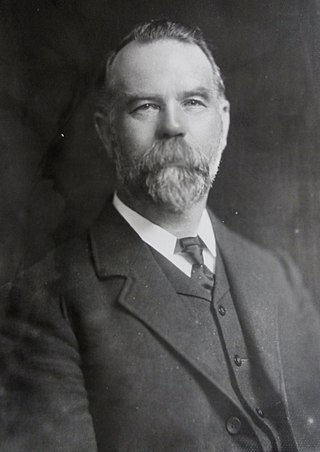
The Mayor of Wellington is the head of the municipal government of the City of Wellington. The mayor presides over the Wellington City Council. The mayor is directly elected using the Single Transferable Vote method of proportional representation. The current mayor is Tory Whanau, elected in October 2022 for a three-year-term.

Sir Francis Joseph Kitts was a New Zealand politician. Originally from the South Island, he served in the military and later was a civil servant before entering politics with the Labour Party. He was the Member of Parliament for Wellington Central between 1954 and 1960. He was also the longest-serving Mayor of Wellington, holding the post from 1956 to 1974. He was also a member at various times of several other local bodies and was still an elected official at his death.

Sir William Appleton was a New Zealand local body politician, advertising agent and leading company director. He was Mayor of Wellington for two terms from 1944 to 1950 after serving as a city councillor from 1931 to 1944. He was knighted in 1950.

The 1913 Wellington City mayoral election was part of the New Zealand local elections held that same year. In 1913, elections were held for the Mayor of Wellington plus other local government positions including fifteen city councillors. David McLaren, the incumbent Mayor, was defeated by John Luke by a relatively narrow margin, becoming the new Mayor of Wellington. The polling was conducted using the standard first-past-the-post electoral method.
The 1915 Wellington City mayoral election was part of the New Zealand local elections held that same year. In 1915, elections were held for the Mayor of Wellington plus other local government positions including fifteen city councillors. John Luke, the incumbent Mayor, retained office tallying just ten votes fewer than he did two years earlier. The standard first-past-the-post electoral method was used to conduct polling.

The 1917 Wellington City mayoral election was part of the New Zealand local elections held that same year. In 1917, elections were held for the Mayor of Wellington plus other local government positions including fifteen city councillors, also elected biannually. The polling was conducted using the standard first-past-the-post electoral method.
The 1921 Wellington City mayoral election was part of the New Zealand local elections held that same year. In 1921, elections were held for the Mayor of Wellington plus other local government positions including fifteen city councillors. The polling was conducted using the standard first-past-the-post electoral method.

The 1935 Wellington City mayoral election was part of the New Zealand local elections held that same year. In 1935, elections were held for the Mayor of Wellington plus other local government positions including fifteen city councillors. The polling was conducted using the standard first-past-the-post electoral method.

The 1941 Wellington City mayoral election was part of the New Zealand local elections held that same year. In 1941, elections were held for the Mayor of Wellington and fifteen city councillors plus seats on the Wellington Hospital Board and Wellington Harbour Board. The polling was conducted using the standard first-past-the-post electoral method.

The 1944 Wellington City mayoral election was part of the New Zealand local elections held that same year. In 1944, election were held for the Mayor of Wellington plus other local government positions including fifteen city councillors. The polling was conducted using the standard first-past-the-post electoral method.
The Wellington Citizens' Association, was a right-leaning local body electoral ticket in Wellington, New Zealand. It was formed in 1911 by merging the selection process of council candidates of several civic interest groups and business lobby groups. Its main ambitions were to continue to control the Wellington City Council, reduce local spending and deny left-leaning Labour Party candidates being elected.

Ernest Richard Toop was a New Zealand politician and businessman.

The 1947 Wellington City mayoral election was part of the New Zealand local elections held that same year. In 1947, election were held for the Mayor of Wellington plus other local government positions including fifteen city councillors. The polling was conducted using the standard first-past-the-post electoral method.

The 1950 Wellington City mayoral election was part of the New Zealand local elections held that same year. In 1950, elections were held for the Mayor of Wellington plus other local government positions including fifteen city councillors. The polling was conducted using the standard first-past-the-post electoral method.

The 1956 Wellington City mayoral election was part of the New Zealand local elections held that same year. In 1956, elections were held for the Mayor of Wellington plus other local government positions including fifteen city councillors. The polling was conducted using the standard first-past-the-post electoral method.

The 1959 Wellington City mayoral election was part of the New Zealand local elections held that same year. In 1959, elections were held for the Mayor of Wellington plus other local government positions including fifteen city councillors. The polling was conducted using the standard first-past-the-post electoral method.
The 1914 Wellington City mayoral by-election was part of the New Zealand local elections held that same year. The polling was conducted using the standard first-past-the-post electoral method.

The 1965 Wellington City mayoral election was part of the New Zealand local elections held that same year. In 1965, elections were held for the Mayor of Wellington plus other local government positions including fifteen city councillors. The polling was conducted using the standard first-past-the-post electoral method.
The 1998 Wellington City mayoral election was part of the New Zealand local elections held that same year. In 1998, elections were held for the Mayor of Wellington plus other local government positions including 18 councillors. The polling was conducted using the standard first-past-the-post electoral method.

John Gibbs Churchill was a New Zealand trade unionist and local politician. For six years he was the mayor of Otaki.









